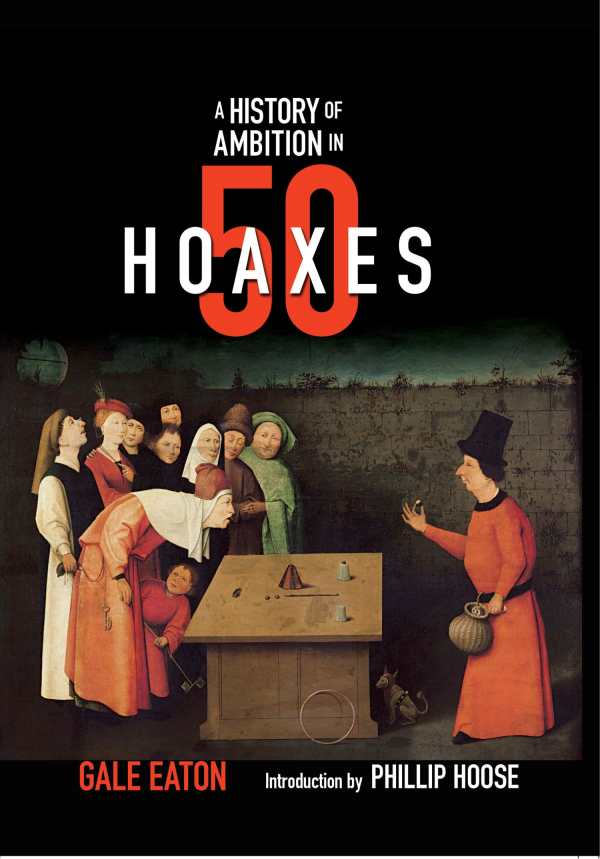A History of Ambition in 50 Hoaxes
The “History in 50” series collects linked essays on particular topics; the previous volume was about disasters. In A History of Ambition in 50 Hoaxes, former children’s librarian Gale Eaton examines history’s hoaxes and asks why they still capture the collective imagination.
The word “hoax” might be derived from “hocus pocus,” Eaton notes, which speaks to the successful hoax’s blend of convincing detail and trickery. Starting with the Trojan Horse, the book proceeds along a chronological timeline, illuminating each fascinating four-page anecdote with color images—paintings, photographs, and maps—and a pull box giving further context in a different font.
From fake archaeological discoveries to Orson Welles’s prank Martian landing, Eaton argues that “there is something artistic about a fine hoax; like a good novel or a conjuror’s trick, it creates an alternative reality.” There can be many reasons for initiating a hoax: for William-Henry Ireland, forging a Shakespeare play and other Bard memorabilia in the 1790s was an attempt to please his father; for Charles Dawson, the likely “Piltdown Man” faker who fused a human cranium with an orangutan jaw in the early 1900s and passed the skull off as proof of a human ancestor, it was the search for scientific acclaim.
Nowadays crop circles have replaced the medieval con of alchemy, but the human response is markedly similar: we want to believe, Eaton observes, and “our beliefs affect the way we experience what’s out there.” The same optimistic credulity that led Sherlock Holmes author Arthur Conan Doyle to believe in photographed “fairies” still drives us to hope UFOs exist and Ponzi investment schemes might work. “Hoaxes and ambition come from the same human capacity to imagine things that haven’t happened,” Eaton notes; to avoid being gullible, we have to think critically. That’s a valuable lesson for kids everywhere.
Reviewed by
Rebecca Foster
Disclosure: This article is not an endorsement, but a review. The publisher of this book provided free copies of the book to have their book reviewed by a professional reviewer. No fee was paid by the publisher for this review. Foreword Reviews only recommends books that we love. Foreword Magazine, Inc. is disclosing this in accordance with the Federal Trade Commission’s 16 CFR, Part 255.


